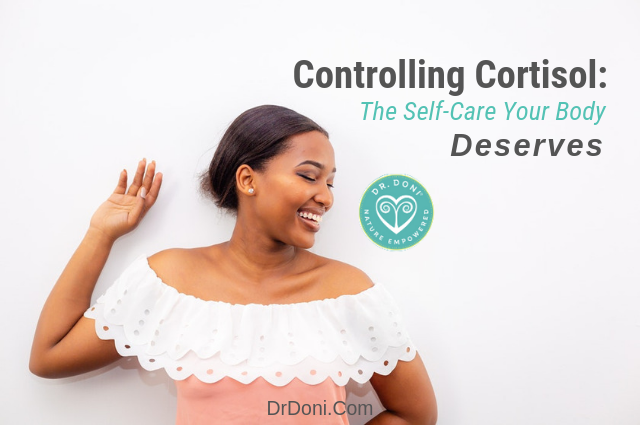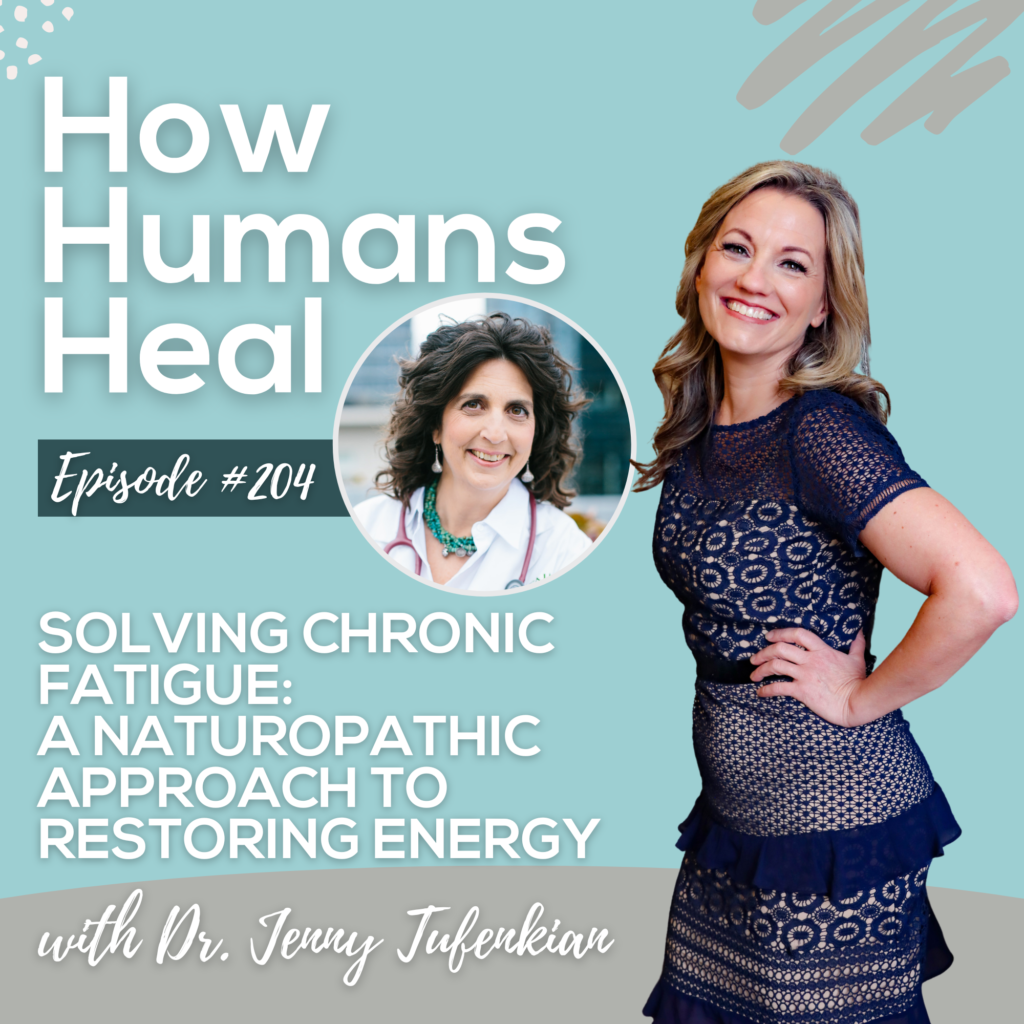

Discover how controlling cortisol levels in your body can be the key to living a life with less stress, more energy and overall optimal health.

While it’s no laughing matter, it’s certainly become almost a running joke with my patients, that no matter what they come in for we’re still going to talk about their cortisol levels.
Of course we address all of their symptoms to get to the root of their distress; however, more times than not, a major contributing factor hides within their adrenals… and how cortisol is behaving in their bodies.
But first, what exactly is cortisol?
A Crash Course On Cortisol
In short, cortisol is the body’s alarm system that something isn’t right.
Made within the adrenal glands—located just above the kidneys—it is the body’s primary stress hormone that sends signals throughout our bodies when there is an imbalance or increased exposure to stress.
Many things can trigger cortisol, even some you might not realize, such as eating sugar, eating large meals, skipping meals, staying up late, injuries, exercising too hard, staying consistently busy, the toxins we are exposed to, and overstimulation.
Almost all of the cells within our bodies have cortisol receptors, which allows it to affect and control various functions such as:
- Turning on or off digestion
- Determining immune function
- Influencing mood and sleep
- Managing inflammation
- Controlling blood sugar levels
- Regulating metabolism
- Communicating with all other hormones, such as thyroid
- Influencing memory formation
- Responding to stress
Cortisol-Related Conditions
When your levels are at their best, cortisol is highest in the morning, gradually decreasing throughout the day. Our levels are influenced by both our genetics and our routine stress exposures. For example, perhaps your daily routine consists of a hectic period from 5-6:30 PM, as everyone returns home from school and work and you rush to make dinner, do homework. In time, your body will adapt and if we were checking your levels throughout that time, we would see a spike in cortisol.
It also communicates with our immune system. This might help explain why you notice getting sick frequently during high-stress periods in your life. Right before finals? Preparing for a major move? While it’s the worst timing possible, chances are you’ve noticed that these are also the times you’ve come down with the flu, a cold or flare up in your autoimmune conditions.
Having levels that are either too high or too low can have serious and lasting effects as well.
High Cortisol
When our bodies have too much cortisol we will have a harder time digesting our food which can result in leaky gut, imbalanced gut bacteria, heartburn, IBS and even ulcers.
Higher cortisol levels can also cause low moods, disrupted sleep and decreased memory. Elevated blood sugar levels, weight gain, irregular menstrual cycle, fertility issues, low thyroid function, allergies, autoimmunity, and histamine intolerance are also more likely when cortisol is too high even for part of the day.
That said, I want to distinguish between what I am describing and something called Cushing’s Syndrome. Cushing’s Syndrome is when you have too much cortisol, all day or over an extended period of time, often caused by a medication or tumor. It can lead to major health issues and is managed by an endocrinologist.
Low Cortisol
On the other side of the spectrum, Addison’s disease is another rare condition when the adrenal glands stop making cortisol all together. Patients experience severe fatigue and weakness and require cortisol replacement under the care of an endocrinologist.
What is much more common is to have slightly low cortisol levels in the morning or during the day, when it should be higher. Common symptoms of this include fatigue, low mood (yes, the mood can be lower with both high or low levels), muscle weakness and dizziness specifically when going from sitting to standing.
But here’s the thing… we, to an extent, are in control of our levels. The adrenal glands can recover from stress exposure when given the right support. We just need to know what support to choose.
I’m often heard saying that “knowing your cortisol is the ultimate stress test”–and for good reason.
When I measure patients’ cortisol levels I am able to see how stress is truly affecting them; for example, what are their levels at various times of day and night? This information is important because certain herbs and nutrients help to increase cortisol that is too low, while others lower cortisol that is too high.
Then, as we work to return cortisol to healthier levels using herbs, nutrients, and reducing stress exposure, we begin to send healthy signals to the rest of their body. In turn, they literally become healthier.
So how do we do this?
The Connection Between Self Care and Stress
I know that sometimes it feels “indulgent” to focus on ourselves. At some point in our existence as humans, we turned taking care of our health into a luxury, not a necessity. However, it’s time to start making choices that help us feel our best.
It’s important to give our bodies time to rest and reset the cortisol to end the non-stop SOS signals shooting to all of our various systems. Otherwise, we’ll continue to get—and stay—sick, suffer from lack of sleep and maintain high levels of stress.
It’s not easy… and I’m not here to act as if it is. It takes mental grit to choose to go to bed earlier, eat clean, avoid sugar and take mindful breaks each day. We want to do the EASY things; unfortunately, easy isn’t always best.
Ways of Naturally Controlling Cortisol Levels:
- Spend time in nature (outdoors or even watering your plants)
- Learn to simply DO NOTHING—our bodies require that break from the GO GO GO
- Adjust our intake of herbs and nutrients related to the balancing of cortisol
- Shift our stress exposure with diet and lifestyle changes
- Helminth therapy. Interestingly, organisms that live in our intestines and protect us cannot survive in stressful environments, so for their own preservation, they help to naturally us recover from stress. You can learn more about my experience with helminth therapy here.
The message of the adrenal glands is almost a plea to prioritize ourselves and our health. How do we take care of ourselves each day to allow our bodies to heal and recover from stress?
You can read more about the connection between stress and cortisol inside The Stress Remedy and The Stress Warrior. For more information about the herbs and nutrients associated with adrenals and their production of cortisol, sign up to download my FREE 35-page A Guide to Adrenal Recovery.
If you’d like a “stress test” done so you can find out how stress has affected your cortisol, the best way to do that is to submit a request to meet with me one-on-one and for either my Adrenal Wellness Program, or my Fast Track Program (for those of you who want and need to recover from stress in the most efficient way possible).
At the end of the day, my best advice is this: Stop racing through the day, and instead, focus on your health. It takes awareness and planning to help us live our best lives each day.
But it’s so worth it, don’t you think?
–Dr. Doni
26th March 2019
*Please keep in mind that any and all supplements—nutrients, herbs, enzymes, or other—should be used with caution. My recommendation is that you seek the care of a naturopathic doctor (with a doctorate degree from a federally-accredited program) and that you have a primary care physician or practitioner whom you can contact to help you with individual dosing and protocols. If you ever experience negative symptoms after taking a product, stop taking it immediately and contact your doctor right away.
Share this Post:
Dr. Doni Wilson's Team
14 Day Detox Program
Take the Stress Type Quiz
Dr. Doni Social Media
Popular Posts


The 5 Burnout Types

Healing HPV Holistically: Dr. Doni on the Inspire Health by Jen Podcast

Recent Podcasts
Signup to receive our weekly newsletter with all the latest news, podcasts and special offers
New Book - Order Today!

SIMPLE PRACTICES for SHIFTING FROM YOUR STATE of STRESS to YOUR FLOW and FREEDOM
MASTER YOUR STRESS
RESET YOUR HEALTH
Order Now! Related Posts

What is making you susceptible to HPV?
I have been working with women who had abnormal cells on their cervix and/or vaginally, caused by HPV for over 20 years now. And while

The 5 Burnout Types
Did you know there are 5 burnout types? They are based on your Stress Type®, which is how your adrenal function has been affected by

Healing HPV Holistically: Dr. Doni on the Inspire Health by Jen Podcast
Dr. Doni was interviewed by Jen Ciszewski on the Inspire Health by Jen Podcast, talking about how to heal away HPV from your body for good.

Stress and Trauma: The Science Behind It, How It Shows Up and How to Heal: Dr. Doni on The Burn Fat and FEAST Podcast
Dr. Doni was interviewed by Sarah B. Thomas on the Burn Fat and FEAST Podcast, talking about the impact of stress and trauma on our health and what to do to recover from them.














